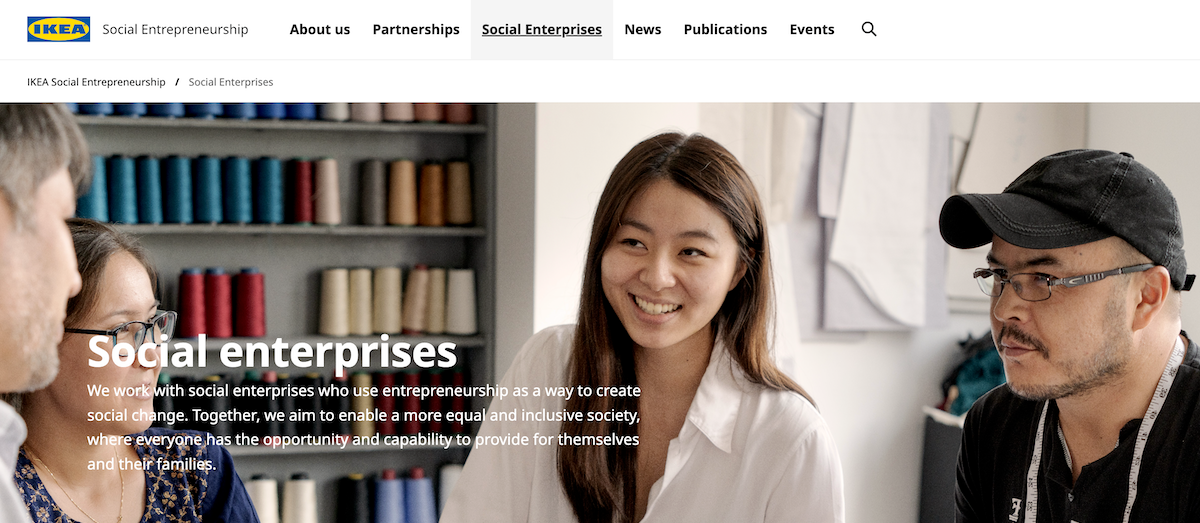NESsT and IKEA Social Entrepreneurship are expanding their South America Accelerator Program. They've added nine new social enterprises, bringing the total to 26 since the program started in 2020.
This initiative aims to boost sustainable development and inclusive growth in South America by supporting businesses that focus on economic and environmental progress in local communities.
Driving Sustainable Development in South America
The NESsT - IKEA Social Entrepreneurship partnership, supported by IKEA Chile, Colombia, and Peru, has been instrumental in extending support to high-potential social enterprises.
In 2023, the partnership expanded to include 22 additional enterprises, aiming to create and maintain 2,500 formal, fairly compensated jobs while enhancing environmental practices.
Key Objectives
- Creating dignified jobs for marginalized communities
- Enhancing quality of life
- Promoting environmental sustainability
- Ensuring gender equity
List of New Social Enterprises Joining the Accelerator Program

From a pool of 131 applications, nine social enterprises were selected to join the impact accelerator. These enterprises are committed to integrating social and environmental goals into their business models, thereby maximizing their impact.
Agil:
- Provides affordable e-commerce solutions to small, micro, and family-run enterprises in Chile’s HoReCa industry.
- Supports food delivery drivers to earn up to 20% higher income.
Amazóniko:
- A recycling platform in Bogotá, Colombia.
- Engages over 16,500 individuals to recycle 20 tons of materials monthly.
Andes Bee:
- Sources sustainable honey and bee products from small beekeepers in Chile.
- Increases beekeepers’ income by up to 45%.
Asoprocegua:
- Supports 250 small farmers in Guaviare, Colombia.
- Cultivates Amazon fruits like açaí without deforestation.
Disruptia:
- Uses AI-driven technology for training and recruitment services.
- Assisted 3,000 people, including youth, women, and ethnic minorities, in finding jobs.
Federación Campesina del Cauca (FCC):
- Supports nearly 500 small-scale coffee farmers in Colombia.
- Focuses on income diversification and climate resilience.
Fundación Hilo Sagrado:
- Improves the livelihoods of 183 Indigenous artisans in Colombia.
- Enhances income and living conditions, especially for women artisans.
Novatio:
- Provides clean energy solutions to remote farming communities in Colombia.
- Supports nearly 100 rural families, reducing pollution and protecting health.
Okolo:
- Produces eco-friendly reusable diapers.
- Provides flexible income opportunities to 300 low-income mothers and prevents significant CO2 emissions.
Transforming South America's Economy
According to Kirsten Dueck, CEO of NESsT, the partnership with IKEA Social Entrepreneurship is pivotal in addressing income inequalities and environmental challenges in South America.
By investing in these innovative solutions, NESsT and IKEA Social Entrepreneurship aim to foster a more inclusive and sustainable economy.
Impact Areas:
- Use of renewable materials
- Promotion of a circular economy
- Sustainable and regenerative agriculture
- Job inclusion
Comprehensive Support for Social Enterprises
The accelerator program offers more than just financial aid. Enterprises receive tailored support in governance, business development, investment readiness, and more.
Additionally, they benefit from mentorship and masterclasses provided by IKEA co-workers, which help them innovate, expand their market presence, and enhance operational efficiency.
Long-term Vision and Commitment
By adopting a long-term portfolio approach, NESsT and IKEA Social Entrepreneurship aim to position these enterprises for sustainable growth.
The ultimate goal is to create a ripple effect, inspiring other companies and industries throughout the region to adopt sustainable business models.
About NESsT:
- Invests in enterprises creating quality jobs for underserved communities.
- Since 1997, has invested over $36M, trained 35,000+ entrepreneurs, and supported 248 enterprises.
About IKEA Social Entrepreneurship:
- Founded in 2018, supports social entrepreneurs with grants, loans, market access, and knowledge sharing.
- Aims to create a more equal and inclusive society by addressing root causes of inequality and exclusion.








